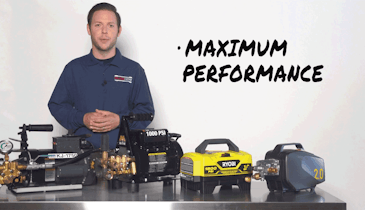Interested in Business?
Get Business articles, news and videos right in your inbox! Sign up now.
Business + Get AlertsThere’s no single formula for success in this industry. In fact, 10 contractors may very well give you 10 different definitions of success. One of the great things about this industry, however, is the opportunity it provides anyone who is willing to work hard and treat customers fairly.
For Snowbridge Inc., high up in the snowy mountains of Colorado ski country, success has meant being very proactive about procuring business. The company, profiled this month, has worked hard to establish preventive maintenance contracts, and has expanded its menu of services to be able to handle just about any call.
Chris Tatro, vice president and co-owner of the firm, says preventive maintenance is the company’s bread and butter. Snowbridge has been upselling maintenance contracts to its commercial customer base since the company was founded in 1976.
The reasons are threefold: Snowbridge’s commercial customer base includes a lot of seasonal businesses that stand to lose big if a clogged drain shuts them down peak season; they help the company maintain steady cash flow; and they position Snowbridge as a preferred contractor when emergencies arise.
Selling customers on the preventive-maintenance concept has never been difficult, Tatro says. And it’s particularly easy to convince customers about the merits of preemptive action after they endure a Friday night shutdown.
The company provides many services aside from drain cleaning: septic tank pumping; septic system installations, repairs and inspections; grease trap cleaning; and trenchless pipe repair.
Snowbridge doesn’t have an abundance of any one kind of work, so the company offers a lot of different services to stay busy year-round. Offering diverse services provides other benefits, too. First of all, customers prefer a contractor that offers one-stop shopping because they don’t have to call multiple companies to get work done. Second, it gives the company better control over scheduling because crews don’t have to wait on other contractors. And third, it creates independent revenue streams that can help offset slow times in other service segments and minimize the need for subcontractors.
Diversification has also been a big key to success for Pat Brown at Roto-Rooter of Sioux City, Iowa, the other company profiled in this month’s issue. When Brown bought his franchise in 2001, it was strictly a drain cleaning outfit.
For Brown, diversification wasn’t an option, it was a necessity. He quickly tired of sending work to other contractors and knew he needed to diversify in order keep that business in-house.
Today, the business serves three states, providing underground work on water, sewer and septic systems, septic installation, drain cleaning, jetting, CCTV inspections and general plumbing. When hydroexcavation gained popularity, Brown invested in a hydroexcavator from Vac-Con and jumped into the market. Combined with the other services, it has provided a comfortable niche in the territory.
One of the things Brown has done differently is marketing. While some companies rely on referrals or truck graphics to get their name out, he budgets around $50,000 each year for his promotional efforts, primarily television advertising.
Both of these companies have chosen diversification over specialization, and both have found success with that approach. It may not be the best approach for your business, but there are certainly lessons to be learned from their stories regardless of the direction you take.
Enjoy this month’s issue.





